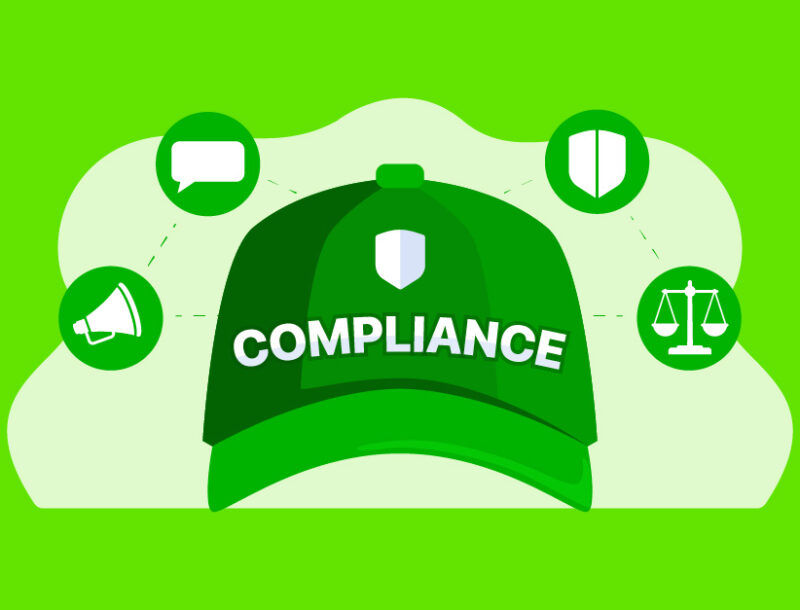Episode 1: Proactive Fair Lending Compliance

Episode Description:
In recent years, there has been an increased regulatory focus on fair lending, specifically from the Consumer Financial Protection Bureau. The Bureau recently announced changes to its supervisory operations to better protect families and communities from illegal discrimination, including situations where fair lending laws may not apply, making fair lending compliance as important as ever.
In this week’s episode of the COMPLY Podcast we sat down with Rhonda McGill, Senior Director of Client Solutions at PerformLine, to discuss how organizations can take a proactive approach to fair lending compliance instead of a reactive one. Rhonda has over 20 years of experience in the housing and mortgage industry including development, homebuyer education, and marketing and licensing compliance.
Show Notes:
- CFPB Compliance Bulletin Warns Mortgage Servicers: Unprepared is Unacceptable: https://bit.ly/3WPvM3x
- Follow Rhonda: https://www.linkedin.com/in/rhonda-mcgill/
- Follow Ashley: https://www.linkedin.com/in/ashley-cianci
Subscribe to COMPLY: The Marketing Compliance Podcast
About COMPLY: The Marketing Compliance Podcast
The state of marketing compliance and regulation is evolving faster than ever, especially for those in the consumer finance space. On the COMPLY podcast, we sit down with the biggest names in marketing, compliance, regulations, and innovation as they share their playbooks to help you take your compliance practice to the next level.
Episode Transcript:
Ashley:
Welcome to the COMPLY podcast! The state of marketing compliance and regulation is evolving faster than ever, especially for those in the consumer finance space. I’m your host, Ashley from PerformLine. On this show, I sit down with the biggest names in marketing, compliance, regulations, and innovation as they share their playbooks to help you take your compliance practice to the next level. Thank you so much for listening and we hope you enjoy!
Ashley:
Hello and welcome to our very first episode of the COMPLY podcast. In recent years, there’s been an increased regulatory focus on fair lending, specifically from the Consumer Financial Protection Bureau. The Bureau recently announced changes to its supervisory operations to better protect families and communities from illegal discrimination, including situations where fair lending laws may not apply, making fair lending compliance as important as ever.
This week, I sat down with Rhonda McGill, Senior Director of Client Solutions at PerformLine as we discussed how organizations can take a proactive approach to fair lending compliance instead of a reactive one. Rhonda has over 20 years of experience in the housing and mortgage industry, including development, home buyer, education, and marketing and licensing compliance. So without further ado, let’s get started.
Hello, Rhonda, thanks for joining us today! Today, we’re continuing the conversation around fair lending, a topic that’s been popping up more recently in the past year, and it sounds like we can expect it to continue to be a hot topic throughout this year as well. So let’s dive right in. What are some ways lenders are being proactive to get out ahead of potential fair lending risk?
Rhonda:
A lot of the folks that I’m talking to out there are really focusing on the basics, updating their fair lending policy statements, and reviewing them often because things change within the business. People are taking the time to really stay on top of what’s happening and continuing to update their policies.
They’re also holding more training. I’ve seen more people asking about training for fair lending and who does good training for employees, officers, and board members. They’re making sure that there’s training that focuses on avoiding unconscious bias because, although nobody intends to do things the wrong way, sometimes you can slip up and things can go wrong.
I would also say that monitoring for compliance with fair lending policies and procedures is a very important thing for folks to do. It’s one thing to monitor and stay on top of your fair lending program, but is it aligned with those policies? And so a lot of folks are really trying to make sure that they’re focusing on, “are we doing what we say we are gonna do?” Stay on top of the marketing, and do regular assessments of your marketing. I mean, most folks are already doing a really good job as it applies to reviewing the marketing, but are you really assessing the marketing and understanding the sources for the marketing campaigns? Where are those things coming from? What are the different algorithms and what points are you using, data points, in order to determine who you’re marketing to?
Ashley:
Absolutely. And I feel like the word algorithm has come up more and more often as well for people to pay attention to.
Rhonda:
It’s becoming a part of the English language.
Ashley:
Exactly, exactly. What about specifically targeting underserved areas for advertising or for lead gen purposes?
Rhonda:
I would just say that if you’re targeting, it’s important that you’re not excluding. You can’t exclude groups based on personal characteristics. So you have to make sure that with advertisements, you’re not just doing advertisements that are based on personal interests or behaviors, because even though there may not be an intentional bias, there definitely could be. One could occur as a result of how you’re targeting your marketing. So, it’s just really making sure that you are all-inclusive when it comes down to targeting during your targeted marketing.
Ashley:
Absolutely. So what are some things you did at your former companies to get out ahead of these potential fair lending risks?
Rhonda:
Training, training, training. Training is required at all levels. And again, I can’t say it enough, even at the board level, they need to understand the importance of fair lending and make sure that the company is armed with a very solid, fair lending program. Monitoring for those complaints and those calls and understanding what people are saying when calling in. If there is a complaint, dig in and understand what caused that complaint to come through, and is it a fair lending reason? And if it is, jump on it. You can’t just brush it under the rug, because an examiner or regulator is gonna come through and they’re gonna find it and they’re gonna wanna know why, and they’re gonna start digging and they’re gonna start probing. And it could cause you some aches and pains, so you don’t want that.
And one of the bigger things that folks need to get a little bit better at is understanding what’s happening as it applies to social media. What is your social media policy for your company? Make sure that there’s a compliance process to track social media. What are some of the different things that are happening on the social media space, who’s posting what? Be in control of your brand and control that messaging and make sure that marketing and compliance work hand in hand. It’s not an “us and them”, it’s an us. And they have to work collaboratively together in order to sure that they’re looking out for the betterment of the business, because you can’t grow if you’re outta business or you’re getting so many fines that you can’t stay in business.
Make sure that folks are arming themselves with all of the protections and that, more often than not, compliance and marketing are working together.
Understand what your vendors are doing. A lot of folks use third party vendors that are doing affiliate marketing and things like that. And if it’s out there, you’re responsible for it, if your brand is attached to it. So stay close to what’s happening in the space and just be all over your brand and take good care of it.
Ashley:
Yeah, absolutely. And it feels like every day there’s a new social media channel folks are using. I know we’ve heard the term TikTok, and how lenders are using that more and more.
Rhonda:
Well, someone was asking about TikTok the other day. They’re like, well, do you guys do TikTok? And I was like, if our marketing team asks me to do TikTok, you have been warned.
Ashley:
I would love that.
Rhonda:
You got me for a podcast, but you’re not gonna get me for a TikTok.
Ashley:
Not yet. Awesome. So finally, what are just some other considerations lenders need to keep in mind when thinking about fair lending?
Rhonda:
Stay on top of all of the testing and the reporting, and make sure that you’re monitoring and understanding the whole scope of all things fair lending. Regularly dig in, test, and peel back the layers and make sure that everything that you’re doing as it applies to providing your product is really focusing on being all-inclusive.
One of the big focuses this year is redlining. Avoid the risks of redlining and understand the geographic filters in use. Don’t put constraints on the customer by making assumptions about what products they need based on where they live. Let people come to you and tell you what they would like to have, and then make sure that you’re qualifying them appropriately for that product, whether it’s a mortgage, a credit card, or whatever it is in the financial services space. Make sure that you’re giving them an opportunity to come to you and not just making upfront assumptions about whatever is happening in their space.
Be proactive, understand what’s happening in the news, and make sure that you’re putting your best foot forward to be a good steward for your company by being proactive. Don’t put yourself in a situation where you have to be reactive because something occurred for which you were not prepared.
Ashley:
Yeah, absolutely. There was that CFPB bulletin that came out, I feel like almost a year ago, Unprepared is Unacceptable. And although it was almost a year old, it still feels like it rings true.
Rhonda:
It rings very true. And that was really focusing on fair servicing. And that’s still an area that the CFPB is looking very closely at. I was recently at the servicing conference and it was amazing to be in the presence of the servicers that are just really focusing on making sure that they’re putting themselves, their company, and their customers first. I was very impressed with a lot of the folks that I had an opportunity to meet while I was at the conference. And I feel like servicing is definitely something that’s being taken very seriously.
Ashley:
Absolutely. And that’s great that we’re getting back to conferences. People can connect again that way and help each other out.
Rhonda:
Absolutely. And I think it was a bit of a rough period, you know? You had all of this time where folks were just distant from one another and couldn’t be together. It’s hard to collaborate when you’re in your house. All the folks that you would normally see at conferences throughout the year, no one was getting together. But, it was amazing to be together with folks from the MBA conference a few weeks ago.
I think there are a couple more that are coming up soon to really reconnect with folks and to collaborate, which is always great. This is why we started working on having roundtables and things like that—because it was so important to just create a space for folks to be able to get together.
Ashley:
Absolutely. And help each other, figure out what other folks are doing and make a plan for moving forward.
Rhonda:
Absolutely, especially in these times because things are, things are evolving and things are different. We’re under new administration since the pandemic, so the priorities are different. Folks really need to use this as an opportunity to really, if they haven’t already done so, hit that “reset” button. As I always tell people, get that house in order and make sure that you’re doing the right thing as a company, especially now that you’re able to go back into the offices. Hopefully, most people are getting back into their offices—I’m in the office this week!
Being able to have the opportunity to collaborate with the folks within your team is so important right now, so that you can make sure that your business is best structured for success.
Ashley:
I love that. I love the term, “get your house in order.” I think that’s a great, a great big overview of this conversation. So thank you.
Rhonda:
Absolutely.
Ashley:
Awesome. Well, thanks so much, Rhonda, for joining us today, for those of you who are interested in learning more about fair lending, all things regulation, and hearing from Rhonda specifically, you can subscribe to our blog at blog.performline.com.
Rhonda, thank you so much for your insights as always.
Rhonda:
Ashley, thank you so much for having me on. And I know there’s a whole lot of people that know so much more than me in this space, but you know what, I’m always happy to help our clients put themselves and their best foot forward. So it’s been my pleasure.
Ashley:
Awesome. Thanks so much.
Rhonda:
Thank you.
Ashley:
Thanks for listening to this episode of the COMPLY podcast. We hope you enjoy our deep dive into all the proactive measures you can take to stay ahead of fair lending compliance. For additional insights into all things, marketing compliance. You can head to performline.com/resources and be sure to check out the links and resources in the show notes. Thanks again for listening and we’ll see you next time.


